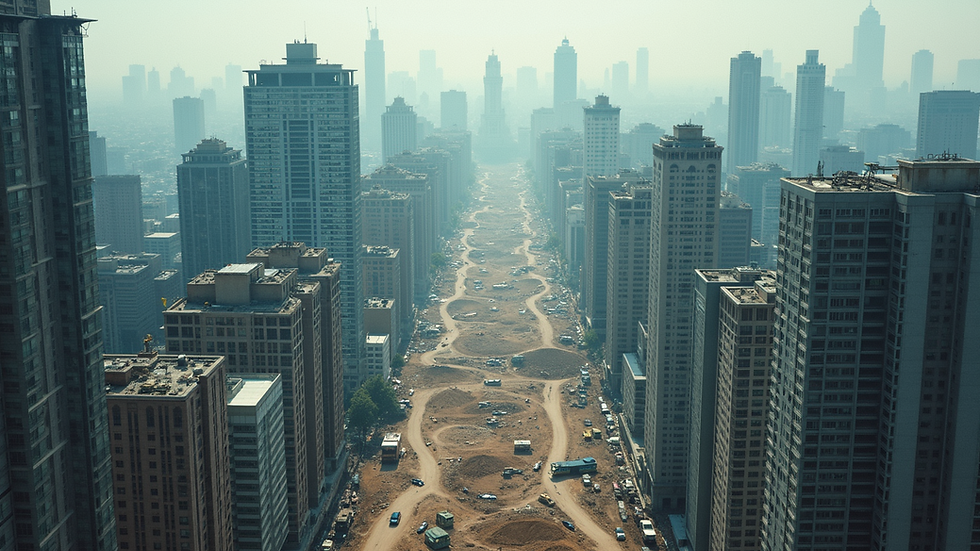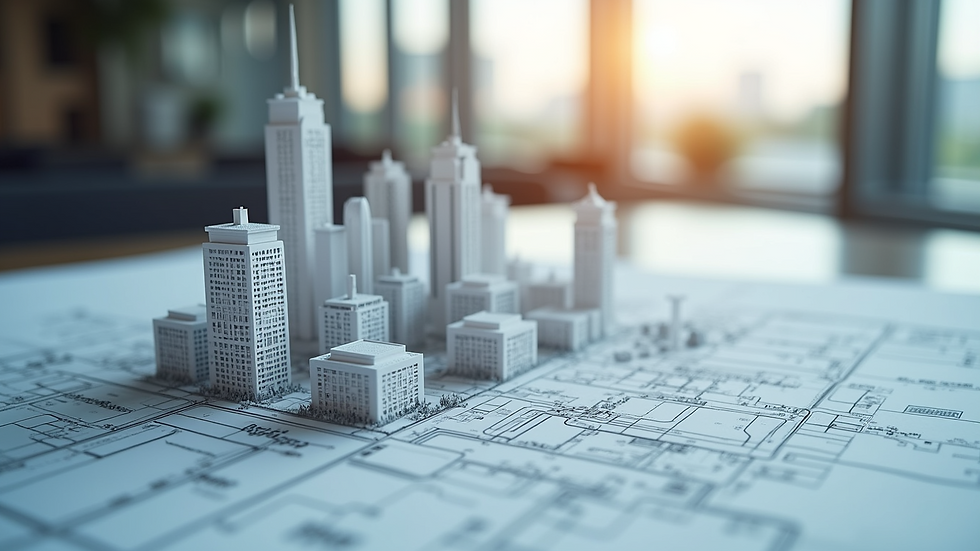Middle East Emerges as a Growth Leader in the Global Construction Market
- Michael Ghobrial

- Aug 20, 2025
- 4 min read
The Middle East is quickly establishing itself as a dominant force in the global construction market. With ambitious infrastructure initiatives, cutting-edge technologies, and a strategic shift towards sustainable and smart city designs, the region is poised for unprecedented growth. This post explores the various elements leading to an upsurge in construction activities, providing insights for professionals, contractors, consultants, and investors interested in this lucrative market.
A Surge in Infrastructure Investment
One of the primary drivers of construction growth in the Middle East is the staggering level of infrastructure investment. Governments across the region, notably in countries like Saudi Arabia, the UAE, and Qatar, are committing substantial funds towards the development of roads, airports, and public transit systems.
Projects such as the NEOM project in Saudi Arabia, a $500 billion initiative aiming to create a futuristic city, demonstrate the scale and ambition of these investments. Similarly, the UAE is currently investing in the expansion of Dubai International Airport and various transportation upgrades in preparation for the Expo 2020 event.

Moreover, with global demand for sustainable infrastructure on the rise, the Middle East is strategically positioning itself as a leader in green construction practices. Governments are increasingly prioritising sustainable methods to support their ambitious climate goals while also addressing the growing concerns related to environmental, social, and governance (ESG) criteria.
Giga Projects Transforming the Landscape
The concept of giga projects is gaining traction as a hallmark of the Middle Eastern construction sector. These massive infrastructure and urban development projects are essential to the region's vision for the future, combining luxury, sustainability, and technological innovation.
Prominent examples include:
The Red Sea Project: This eco-conscious tourism development aims to establish a sustainable tourism destination, encompassing various luxury hotels and facilities across 22 islands and over 90 miles of coastline.
Qatar's Lusail City: A futuristic urban centre that will house over 200,000 residents, featuring smart city technologies and eco-friendly designs.
These projects not only showcase the capabilities of local contractors but also attract international collaboration. Delivery partners and stakeholders such as Arup, AECOM, and Bechtel are working with local firms to leverage global expertise and technologies essential for successful project implementation.

Embracing Construction Technology
As the market evolves, the adoption of advanced construction technologies is becoming crucial to overcoming traditional procurement challenges. Digital transformation within the construction industry is facilitating enhanced project management capabilities. This includes the utilisation of Building Information Modelling (BIM), drones for site inspections, and even artificial intelligence for predictive analytics.
These innovations are especially relevant in a region where maintaining efficient supply chains and controlling construction costs are paramount. The integration of technology not only aids in reducing delays but also drives down overall project expenses while improving quality.
Additionally, the emphasis on data analytics allows stakeholders to monitor real-time project statuses, ensuring transparency and fostering better communication between delivery partners.
Sustainable Construction Initiatives
Sustainability is central to the growth narrative in the Middle East's construction industry. Public-private partnerships (PPP) play a pivotal role here, enabling governments to collaborate with private entities to fund and develop infrastructure that aligns with sustainability goals.
For instance, the Abu Dhabi Sustainable City is a pioneering project that exemplifies how sustainable living can be integrated into urban development. The city boasts renewable energy solutions, water conservation strategies, and innovative waste management systems, setting a benchmark for future developments.
Advocating for sustainable construction practices not only aligns with global environmental goals but also reduces operational costs over time, providing long-term benefits for stakeholders and investors alike.

Addressing Challenges and Looking Forward
Despite the promising growth trajectory, the Middle East's construction sector faces challenges that require robust strategies for mitigation. Procurement challenges, such as shortages in skilled labour or fluctuations in material costs, must be tackled head-on to maintain momentum.
Addressing these issues requires collaboration across the spectrum—right from the policymakers to construction experts. Investing in training and development, alongside forming robust supplier relationships, will be pivotal in ensuring that projects are delivered on time and within budget.
In terms of financing, access to ESG funding is becoming increasingly feasible, offering new avenues for project funding. This aligns with the global investment community's inclination towards projects that consider environmental impact, making it imperative for local businesses to adopt sustainability into their core practices.
The Future of Middle Eastern Construction
The outlook for the Middle East in the global construction market is exceptionally optimistic. With ongoing thoughtful investments and an unwavering commitment to innovative practices, it is clear why the region is being heralded as a growth leader.
In summary, as construction professionals, contractors, consultants, and investors, understanding the unique dynamics at play in the Middle East is essential for strategic planning. Emphasising collaboration, adopting cutting-edge technologies, and prioritising sustainability not only positions stakeholders for success but also assures a thriving construction market for years to come.
The Middle East's commitment to growth is evident, and it is the responsibility of industry stakeholders to harness this potential and navigate the changing landscape effectively. By embracing innovation and sustainability, the region will undoubtedly secure its position as a frontrunner in the global construction arena while also creating a legacy of smart, sustainable cities for future generations.









